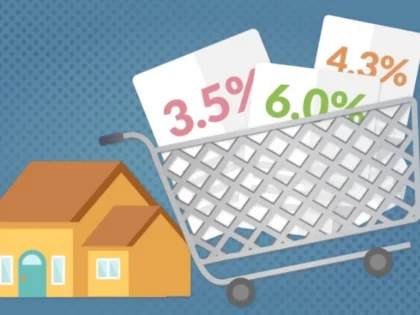Student Loans: Understanding Your Options And Making Informed Decisions
Using a student loan, you can borrow money to cover the costs of attending school. Eventually, you will have to pay back the loan balance plus interest. Your school could provide you with loans as part of your financial aid package. Federal loans have annual and cumulative borrowing caps. Loans that are neither subsidized nor unsubsidized are determined by financial need.
Prices

Limits on Borrowing
 Despite the fact that some borrowers may be inclined to borrow more than the cost of attendance at their school, federal regulations set annual and cumulative student loan limits. These restrictions prevent the total amount of loans from exceeding the student's estimated school attendance cost.
Nevertheless, some borrowers may be approaching these ceilings and will need to carefully choose how much they borrow. A financial aid advisor can help by pointing out additional opportunities to fund education, such as grants or scholarships.
Also, borrowers can check local starting salaries to estimate their post-graduation earnings. While in college, some borrowers also look for methods to supplement their income, such as starting an online business or taking up a part-time job. These additional revenue streams help reduce student debt without jeopardizing their long-term financial security.
Despite the fact that some borrowers may be inclined to borrow more than the cost of attendance at their school, federal regulations set annual and cumulative student loan limits. These restrictions prevent the total amount of loans from exceeding the student's estimated school attendance cost.
Nevertheless, some borrowers may be approaching these ceilings and will need to carefully choose how much they borrow. A financial aid advisor can help by pointing out additional opportunities to fund education, such as grants or scholarships.
Also, borrowers can check local starting salaries to estimate their post-graduation earnings. While in college, some borrowers also look for methods to supplement their income, such as starting an online business or taking up a part-time job. These additional revenue streams help reduce student debt without jeopardizing their long-term financial security.
Rates of interest
 Depending on the type of student loan, interest rates may change, which adds significantly to the loan's overall cost. For instance, because the government covers the interest on subsidized loans for borrowers while they are enrolled in school, subsidized loans have lower interest rates than unsubsidized ones.
Private loan rates are set by specific lenders and may be influenced by the borrower's income and credit history. Borrowers with less established credit and/or income may be able to qualify for loans with more favorable interest rates if a cosigner is added.
Fixed-rate loans, which offer more stability for long-term and monthly payments, are preferred by certain borrowers. On the other hand, you might be able to advantage of a rate dip with a variable-rate refinance, which would lower your overall costs.
Depending on the type of student loan, interest rates may change, which adds significantly to the loan's overall cost. For instance, because the government covers the interest on subsidized loans for borrowers while they are enrolled in school, subsidized loans have lower interest rates than unsubsidized ones.
Private loan rates are set by specific lenders and may be influenced by the borrower's income and credit history. Borrowers with less established credit and/or income may be able to qualify for loans with more favorable interest rates if a cosigner is added.
Fixed-rate loans, which offer more stability for long-term and monthly payments, are preferred by certain borrowers. On the other hand, you might be able to advantage of a rate dip with a variable-rate refinance, which would lower your overall costs.
Payback
 Lenders and loan types have different repayment choices. Once payments start, the majority of borrowers are automatically enrolled in the regular repayment plan; however, they have the option to change this at any time by contacting their servicer. A borrower's monthly payment may be reduced by one of many income-driven repayment schemes, such as REPAYE and the previous Pay As You Earn plan, depending on their household income. If you are thinking about implementing a plan similar to this, you should assess your monthly income to determine how much you can actually contribute to your student loans.
The extended or graduated repayment plans are additional choices that can lower your monthly payments by gradually raising them. Lastly, while in school, during their separation, or during their grace period, debtors can temporarily suspend making any loan payments through deferred repayment. But if you select this option, you should be aware that you will pay higher interest throughout the course of your loan.
Lenders and loan types have different repayment choices. Once payments start, the majority of borrowers are automatically enrolled in the regular repayment plan; however, they have the option to change this at any time by contacting their servicer. A borrower's monthly payment may be reduced by one of many income-driven repayment schemes, such as REPAYE and the previous Pay As You Earn plan, depending on their household income. If you are thinking about implementing a plan similar to this, you should assess your monthly income to determine how much you can actually contribute to your student loans.
The extended or graduated repayment plans are additional choices that can lower your monthly payments by gradually raising them. Lastly, while in school, during their separation, or during their grace period, debtors can temporarily suspend making any loan payments through deferred repayment. But if you select this option, you should be aware that you will pay higher interest throughout the course of your loan.







